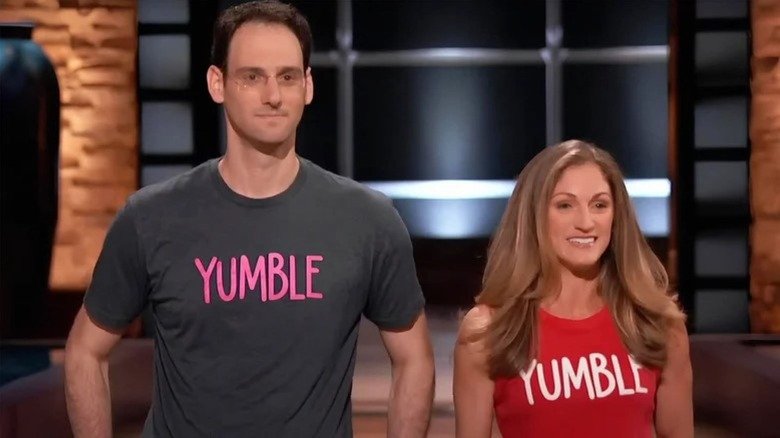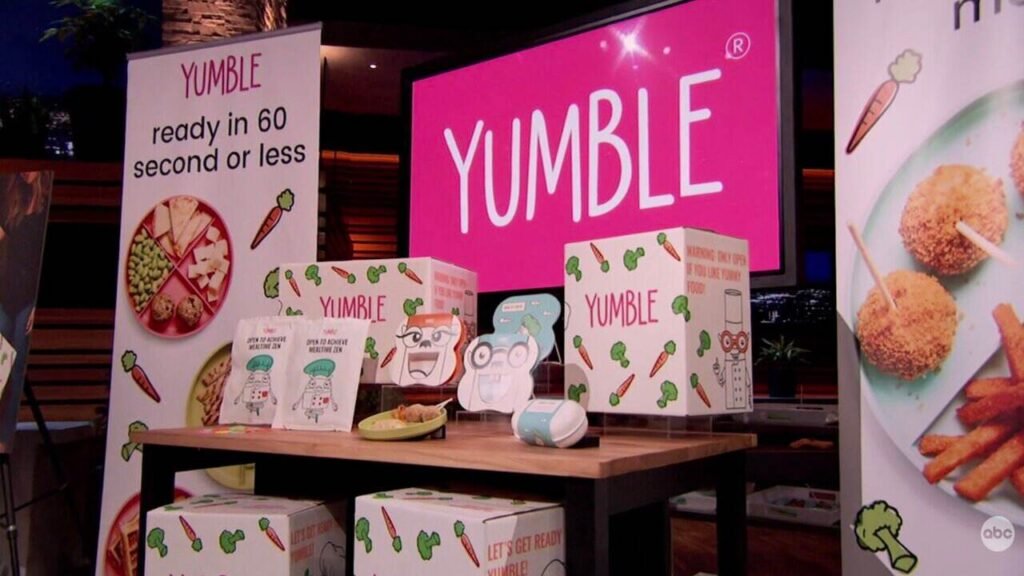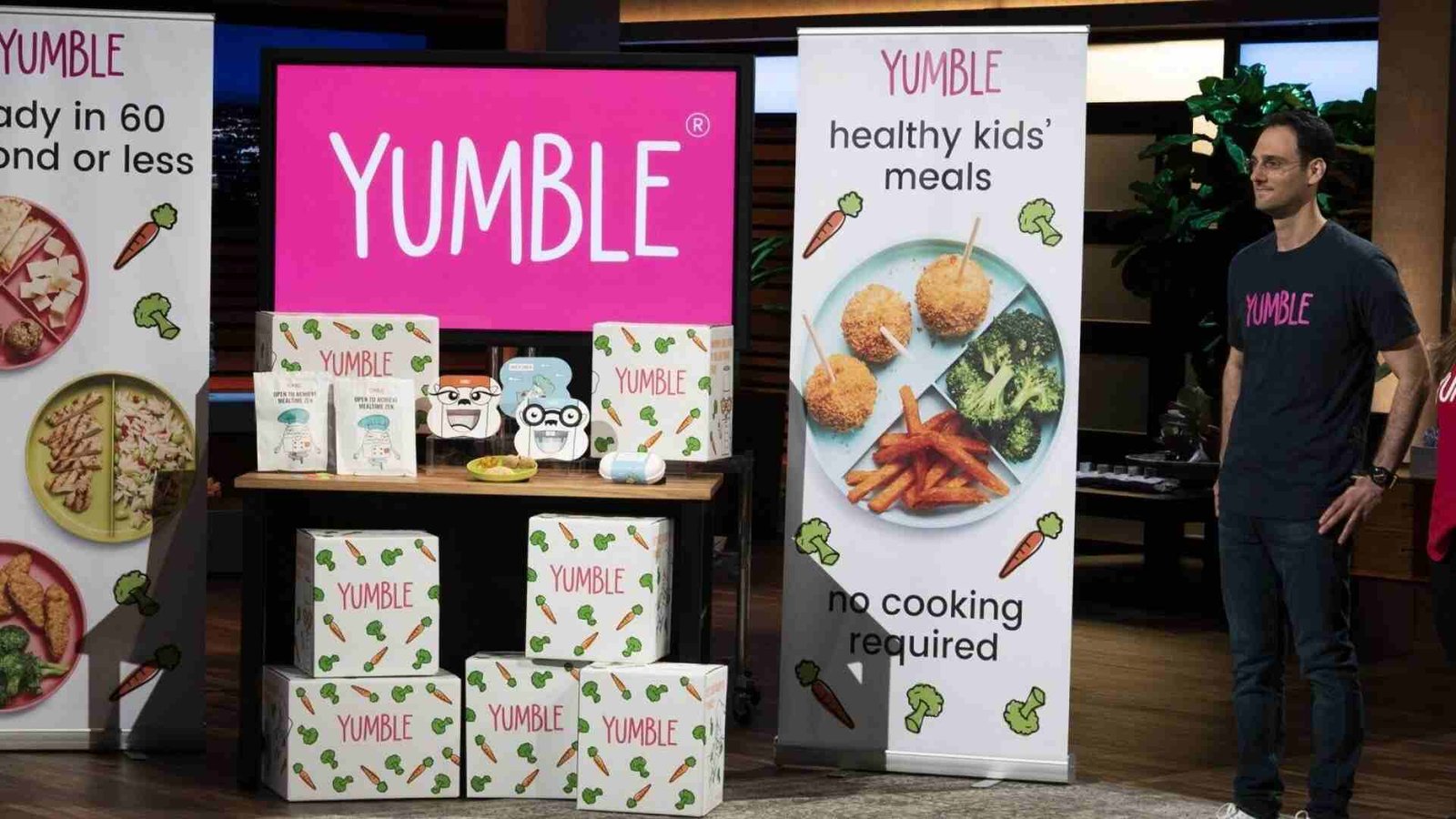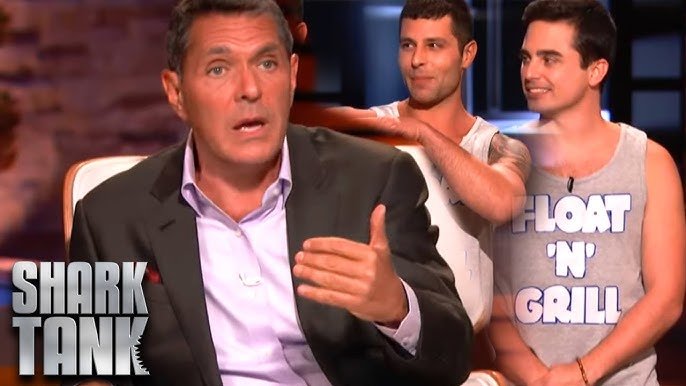Look, landing a deal on Shark Tank seems like a golden ticket, right? But watch what really happens once the cameras stop rolling. Yumble got its shot in front of the Sharks, made a splashy deal, and then had to take on the brutal kids’ meal market. This is the behind-the-scenes story that most blogs won’t touch—the hustle, the heat, and the hard lessons for anyone holding big founder dreams.
Contents
ToggleWhat Was Yumble?
Yumble was all about making parents’ lives easier with healthy, ready-to-eat meals for kids, delivered weekly on a subscription. Startups talk about solving pain points. Yumble actually did it, at least on paper. No more mac and cheese five nights a week or lunchbox shame. Instead, you got chef-crafted dishes, all prepped, portioned, and ready for the high-friction world of fussy eaters.
Parents loved the convenience. For a while, the numbers looked promising. But as anyone who’s fought for fridge space at home—or runway in a startup—knows, promising only takes you so far.
Who Built Yumble?
Here’s the real origin story: David and Joanna Parker, a husband and wife duo, started Yumble out of pure we’re living necessity. They had three kids and knew the pain of last-minute dinners, picky eaters, and the guilt that comes from letting nutrition slide when you’re busy.
Unlike founders chasing a trend, the Parkers were solving their own headache—which, in my book, gives any startup a running start. They came from solid backgrounds: Joanna had a marketing mind, David brought business chops. That’s a founder mix I respect—story plus strategy.

Shark Tank Pitch: Did the Sharks Bite?
Yumble stepped into Shark Tank on Season 10, episode 8, with clear numbers, real demand, and a pitch that would make most founders jealous. They asked for $500,000 in exchange for 4% equity, pegging their valuation at a cool $12.5 million.
Here’s what got the Sharks buzzing: Yumble clocked $1.3 million in sales for 2018, growing 30% month over month. Add a 70% reorder rate, and you’ve got the kind of metrics that Shark Tank investors circle like blood in the water.
But this is Shark Tank, not Shark Fantasy. The catch? The Sharks saw the meal kit graveyard—Hungryroot, Chef’d, and even giants like Blue Apron all fighting for kitchen shelf space. The concern was competition, churn, and the fact that subscription food is a high-burn, low-margin beast.
Bethenny Frankel was the first Shark to make it real, offering $500k for 15%. Rohan Oza and Lori Greiner came together for $500k at 12%. Bethenny came back in, tightening her deal: $500k for just 6%. That’s a deal signal—she wanted in, but she knew the risk. On air, the Parkers accepted Bethenny’s 6% offer.
I’ve seen founders get too greedy—these two played it cool, giving up a sliver for cash and cachet.
Net Worth and Valuation: Did Yumble Make Bank?
Let’s get into the real money question: Was Yumble ever as big as the pitch made it sound?
On Shark Tank, with a $500k deal for 6%, the valuation sat at roughly $8.3 million. That’s not unicorn status, but for a two-year-old startup? Impressive. Especially when you’re talking about the tough, low-loyalty meal delivery sector.
But after the bright lights faded, Yumble did more than most. They went on to raise $12.5 million in venture capital. That’s the kind of backing you see for companies with a shot at true scale. Their annual revenue cracked $8 million to $10 million at the peak—real numbers, not just inflated DTC dreams.
Was it enough? Not quite. If you know startups, you know raising VC is a double-edged sword: you get more fuel, but you’re now sprinting instead of jogging. The pressure’s doubled.
What Happened After Shark Tank?
So, what’s the actual Shark Tank effect? Yumble saw the big sales bump most brands dream of right after the episode aired. Parents lined up to try the meals, investors made calls, and the media paid attention.
But here’s where hype meets reality. That Bethenny Frankel deal? It fell through after the cameras stopped, which is more common than the show wants you to think. Due diligence kills as many deals as founders’ egos.
What did that mean for Yumble? They didn’t get the Shark payout, but the exposure was enough to put them on the VC radar. They went on to haul in serious capital and kept growing through word of mouth and influencer buzz.
Most companies flash and fizzle post-Shark Tank. Yumble stretched their 15 minutes into real traction, at least for a couple of good years.

Chasing Scale: Growth Moves and Product Fixes
Here’s where most startups drop the ball: listening to the customer. Yumble actually paid attention. Parents complained about portion sizes? The Parkers rolled out Yumble Up, a menu for bigger appetites and older kids.
The playbook was clear: broaden the target market, boost retention, and jack up lifetime value. Smart, but tough.
But the grind got rougher. Scaling meant bigger operations, more spend, and higher burn. Competition? Brutal. Not just from other meal kit startups but from grocery delivery, meal prep apps, and every corner store now offering healthier options.
Some product expansions worked. Others fizzled. It’s a familiar tale—think less Scrub Daddy’s viral magic, more like Bombas putting in the marathon miles and learning from every misstep.
Acquisition and Shutdown: Where’s Yumble Now?
Here’s the honest end: Yumble wasn’t killed by one bad quarter, but by a market that chews up DTC food startups for breakfast. In December 2022, Yumble got scooped up by Dibz Kidz, another kid-focused meal company.
For a brief moment, there was hope. Maybe, joining forces would mean survival. It didn’t. By July 2024, both Yumble and Dibz Kidz were done—websites offline, customers turned away, and another chunk of VC change burned for good.
Did they ever fail big? Sure, but they went down trying to solve a very real problem that all parents know. Sometimes, that’s all you can ask out of a startup.
Lessons for Entrepreneurs: What Yumble’s Story Teaches Us
Let’s break it down for anyone with entrepreneurial blood:
1. The Shark Tank effect gets you in the door, not across the finish line.
Exposure is great. Operations, product-market fit, and capital discipline matter more than one night on TV.
2. Know your customer—and keep adapting.
Yumble nailed this at first but ran into a wall most subscription brands do. Retention is everything. Lifetime value is more than an MBA buzzword.
3. Fundraising is just gas in the tank, not a business model.
$12.5 million in VC means more pressure, higher expectations, and less room for stumbles. If you scale before you’re ready, the market will punish you. Fast.
4. The food subscription market is brutal.
Margins are slim. Logistics are tough. Customer loyalty is fickle. You’re battling not just competitors, but reality—kids change their tastes, parents change their budgets.
5. TV deals rarely finish as seen.
Bethenny’s deal looked great on air, but it fell apart like most handshakes. Expect this. Plan for it.
6. A great founding story helps—but grit and execution matter more.
David and Joanna had the right pain point and a strong why. What ultimately matters? Putting in the tough work after the story stops selling itself.
I’ve seen founders whip up a great pitch and flame out in year two. Yumble’s crew eked out real wins, squeezed as much impact as they could, and took swings at their biggest problems. That’s the side of entrepreneurship no press release tells you about.
SharkWorth’s Final Take
Yumble’s story is proof Shark Tank isn’t a fairytale factory. It’s a high-stakes, high-pressure spotlight that amplifies both the promise and the pitfalls.
The Parkers hustled, closed major funding, and spent years in the fight. They didn’t waste time chasing every trend—they built for a clear customer. In the end, competition, razor-thin margins, and a tough economy stacked the deck against them.
For entrepreneurs looking to pitch, scale, or just survive? Take notes from Yumble. Hype is fleeting. Product-market fit, relentless improvement, and being able to pivot—those are what keep you in the game longer than your Shark Tank rerun.
If there’s a moral here, it’s this: fame helps, but fundamentals decide who’s left standing when the music stops.
Want more real talk and deep dives into Shark Tank startups? Keep watching SharkWorth—we call wins and flops as we see them.










